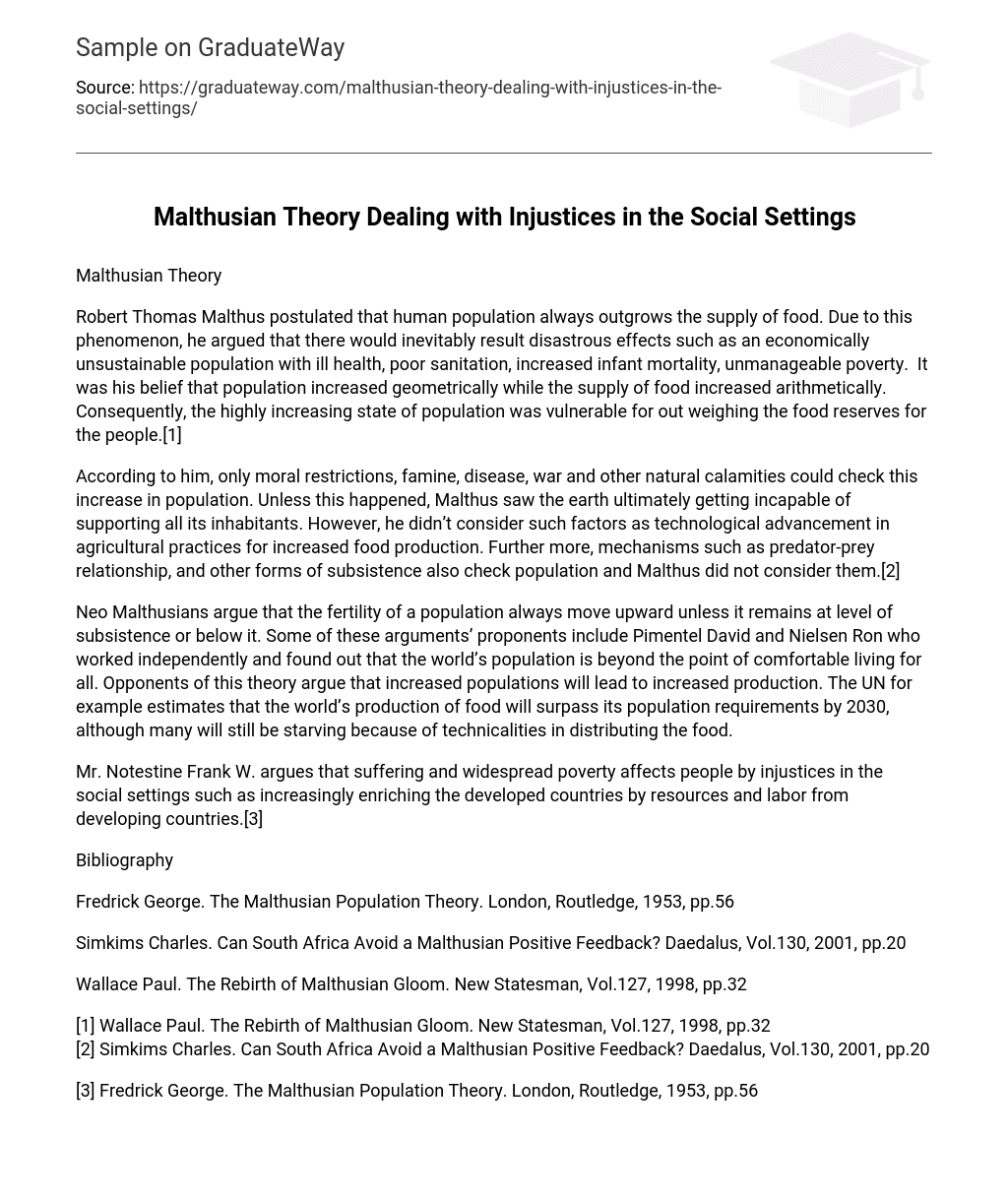Malthusian Theory
Robert Thomas Malthus postulated that human population always outgrows the supply of food. Due to this phenomenon, he argued that there would inevitably result disastrous effects such as an economically unsustainable population with ill health, poor sanitation, increased infant mortality, unmanageable poverty. It was his belief that population increased geometrically while the supply of food increased arithmetically. Consequently, the highly increasing state of population was vulnerable for out weighing the food reserves for the people.[1]
According to him, only moral restrictions, famine, disease, war and other natural calamities could check this increase in population. Unless this happened, Malthus saw the earth ultimately getting incapable of supporting all its inhabitants. However, he didn’t consider such factors as technological advancement in agricultural practices for increased food production. Further more, mechanisms such as predator-prey relationship, and other forms of subsistence also check population and Malthus did not consider them.[2]
Neo Malthusians argue that the fertility of a population always move upward unless it remains at level of subsistence or below it. Some of these arguments’ proponents include Pimentel David and Nielsen Ron who worked independently and found out that the world’s population is beyond the point of comfortable living for all. Opponents of this theory argue that increased populations will lead to increased production. The UN for example estimates that the world’s production of food will surpass its population requirements by 2030, although many will still be starving because of technicalities in distributing the food.
Mr. Notestine Frank W. argues that suffering and widespread poverty affects people by injustices in the social settings such as increasingly enriching the developed countries by resources and labor from developing countries.[3]
Bibliography
Fredrick George. The Malthusian Population Theory. London, Routledge, 1953, pp.56
Simkims Charles. Can South Africa Avoid a Malthusian Positive Feedback? Daedalus, Vol.130, 2001, pp.20
Wallace Paul. The Rebirth of Malthusian Gloom. New Statesman, Vol.127, 1998, pp.32
[1] Wallace Paul. The Rebirth of Malthusian Gloom. New Statesman, Vol.127, 1998, pp.32
[2] Simkims Charles. Can South Africa Avoid a Malthusian Positive Feedback? Daedalus, Vol.130, 2001, pp.20
[3] Fredrick George. The Malthusian Population Theory. London, Routledge, 1953, pp.56





